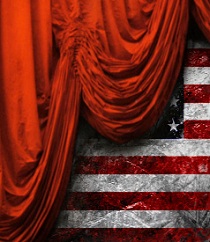WikiLeaks, Ideological Legitimacy and the Crisis of Empire

(Photo: Neon Hallway/Jared Rodriguez)
The US political class [...] may [now] be preparing to expand the definition of treason to include [all] those who are dedicated to freedom of information, especially when it reveals the duplicities of empire.
While empires try to maintain their hegemony through economic and military prowess, they must also rely on a form of ideological legitimacy to guarantee their rule. Such legitimacy is often embedded in the geopolitical reputation of the empire among its allies and reluctant admirers. Once that reputation begins to unravel, the empire appears illegitimate.
The establishment of the US empire in the aftermath of World War II built upon its economic and military supremacy. That empire created an architecture of financial and geopolitical institutions that served not only its own interests, but also those of global capital and international legal and democratic structures. There were, of course, myriad contradictions that materialized throughout the earliest cold war period, but much of the West accepted the general framework and ideological legitimacy of the empire. While a crisis of legitimacy emerged around the Vietnam War and the undermining of the Bretton Woods agreement by the Nixon administration, it was not until the end of the cold war and the development of reckless unipolar geopolitics over the last decade that a real decline in US hegemony became apparent.
Given the battered economic and military standing of the United States over the past several years, the hysterical reaction of the American political class over the recent release of State Department cables by WikiLeaks is not surprising. However, it is instructive to note the response of those in the West to such "displays (of) imperial arrogance and hypocrisy" as reported by Steven Erlanger in The New York Times. Erlanger cites an important editorial from the Berliner Zeitung that underscores the question of ideological legitimacy: "The U.S. is betraying one of its founding myths: freedom of information. And they are doing so now, because for the first time since the end of the cold war, they are threatened with losing worldwide control of information."

























